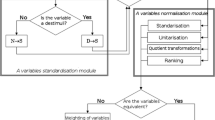Abstract
Recently, various theories of convergence of health care systems have been presented. This review of several dimensions of health priority setting in nine countries sheds light on the interrelationship between convergence and embeddedness. It reconfirms that within a co-existence of convergence and divergence, there are clusters of convergence, primarily at the ideational and social value levels. However, our findings suggest that the variation across different substantive levels is less clear cut than suggested by others. Moreover, the variation between different procedural aspects of convergence appears more significant. Certain ideas involving the need for rationing, the role of market mechanisms, and cost containment have gained recognition by health policy makers across countries, but this has not guaranteed their adoption. Our analysis demonstrates that despite these signs of a convergence at the conceptual level, policy content and the preferred policy instruments for implementing such policy continue to vary widely across these countries.

Similar content being viewed by others
References
Mechanic D, Rochefort DA . Comparative medical systems. Annual Review of Sociology. 1996;22:239–270; Wessen AF. The comparative study of health care reform. In: Powell FD, Wessen AF editors. Health Care Systems in Transition:An International Perspective. Sage: Thousand Oaks; 1999.
Chernichovsky D . Health system reforms in industrialized democracies: an emerging paradigm. The Milbank Quarterly. 1995;73 (3):339–356.
Field MG . Comparative health systems and the convergence hypothesis: the dialectics of universalism and particularism. In: Powell FD, Wessen AF editors. Health Care Systems In Transition: An International Perspective. Thousand Oaks: Sage; 1999.
Gibson D, Means R . Policy convergence: restructuring long-term care in Australia and the UK. Policy and Politics. 2000;29 (1):43–58.
Harrison S, Moran M, Wood B . Policy emergence and policy convergence: the case of “scientific-bureaucratic medicine” in the United States and United Kingdom. British Journal of Politics and International Relations. 2002;4 (1):1–24.
Bennett CJ . What is policy convergence and what causes it? British Journal of Political Science. 1992;21 (2):215–233.
Stone D . Learning lessons and transferring policy across time, space and disciplines. Politics. 1999;19 (1):51–59.
Harrison S, Moran M, Wood B . Policy emergence and policy convergence: the case of “scientific-bureaucratic medicine” in the United States and United Kingdom. British Journal of Politics and International Relations. 2002;4 (1):1–24.
Howlett M, Ramish M . Studying Public Policy: Policy Cycles and Policy Subsystems. New York: Oxford University Press; 1995;107.
Belsky L, Lie R, Mattoo A, Emanuel EJ, Sreenivasan G . The general agreements on trade in services: implications for health policymakers. Health Affairs. 2004;23 (3):137–145.
Sexton S . Trading health care away? GATS, public services and privatization. 2001; www.thecornerhouse.org.uk/pdf/briefing/23gats.pdf. (accessed 2/25/06) Sexton (2001).
Field MG . Comparative health systems and the convergence hypothesis: the dialectics of universalism and particularism. In: Powell FD, Wessen AF editors. Health Care Systems in Transition: An International Perspective. Thousand Oaks: Sage; 1999.
Jacobs A . Seeing difference: market health reform in Europe. Journal of Health Politics, Policy and Law. 1998;23 (1):1–33; for a similar argument in relation to public management reform see Pollitt C. Clarifying convergence. Striking similarities and durable differences in public management reform. Public Management Review. 2002;4(1):471–492.
Freeman R . The Politics of Health in EUROPE. Manchester: Manchester University Press; 2000.
Lian OS . Convergence or divergence? Reforming primary care in Norway and Britain. The Milbank Quarterly. 2003;81 (2):305–330; Rico A, Saltman RB, Boerma WGW. Organizational restructuring in European health systems: the role of primary care. Social Policy & Administration. 2003;37(6):592–608.
Saltman RB . Convergence versus social embeddedness. Debating the Future Direction of Health Systems. European Journal of Public Health. 1997;7 (4):449–453.
Bennett CJ . What is policy convergence and what causes it? British Journal of Political Science. 1992;21 (2):215–233; similarly Pollitt C. Clarifying convergence. Striking similarities and durable differences in public management reform. Public Management Review. 2002;4(1):471–492.
Blank RH, Burau V . Comparative Health Policy. Basingstoke: Palgrave; 2004.
See Ranade W (editor). Markets and Health Care: A Comparative Analysis. London: Longman; 1998.
Saltman RB . Convergence versus social embeddedness. Debating the future direction of health systems. European Journal of Public Health. 1997;7 (4):449–453.
Author information
Authors and Affiliations
Corresponding author
Additional information
Do health systems converge around the world toward similar policies and practices? If similar trends overwhelm variety, this would have powerful implications for policymakers. This study suggests that despite some similarities, countries pursue health policy along many courses.
Rights and permissions
About this article
Cite this article
Blank, R., Burau, V. Setting Health Priorities Across Nations: More Convergence than Divergence?. J Public Health Pol 27, 265–281 (2006). https://doi.org/10.1057/palgrave.jphp.3200082
Published:
Issue Date:
DOI: https://doi.org/10.1057/palgrave.jphp.3200082




